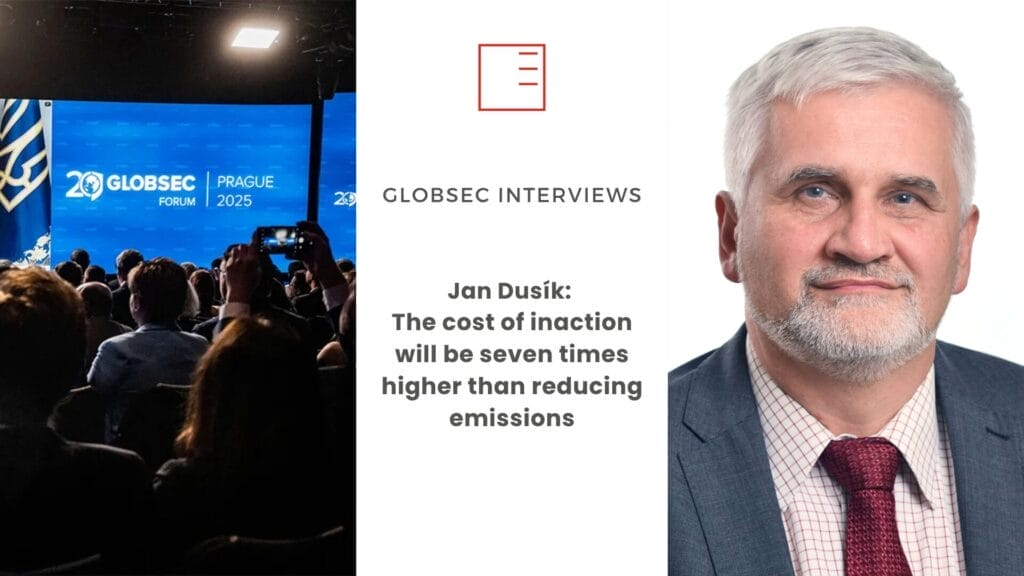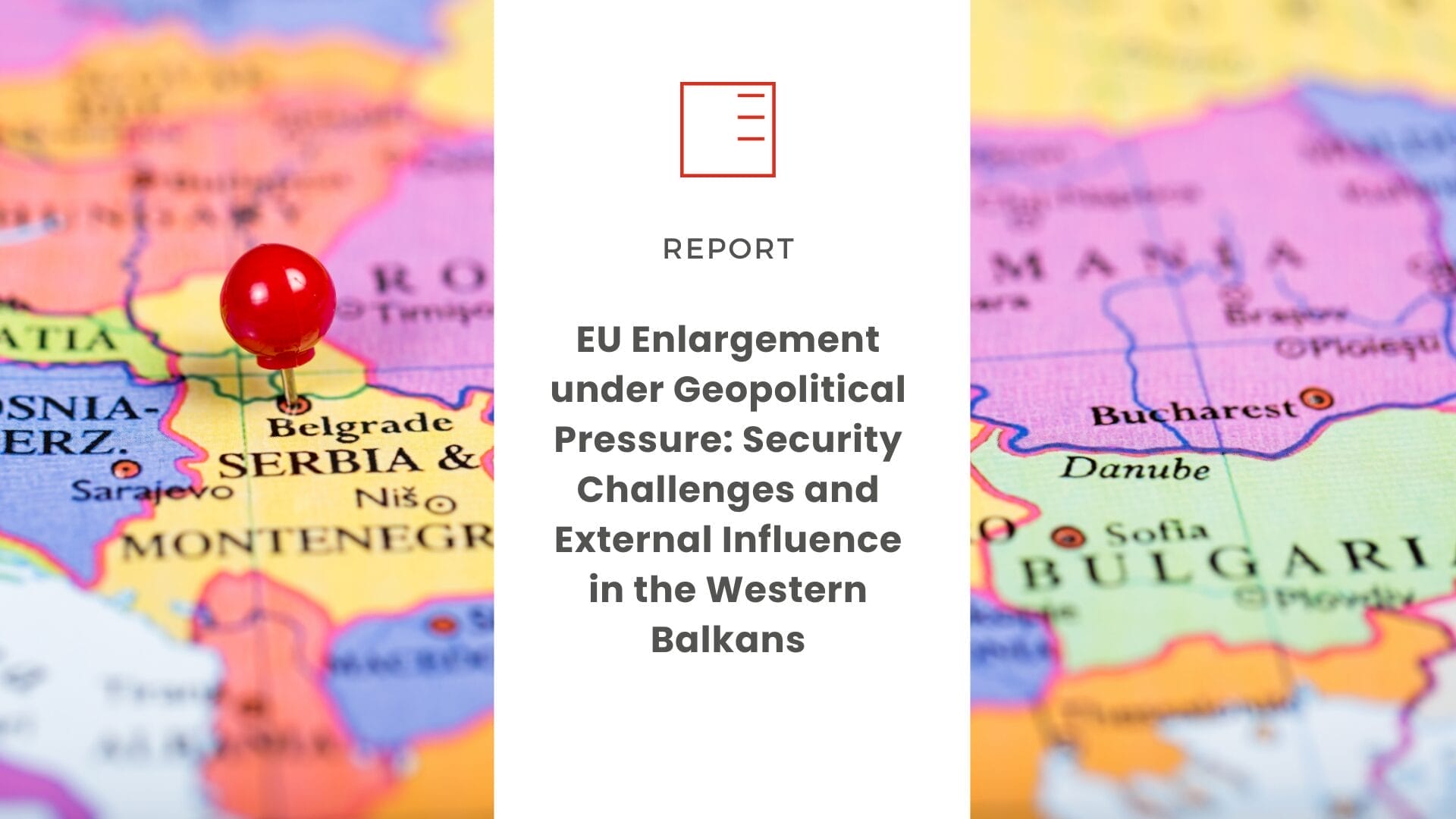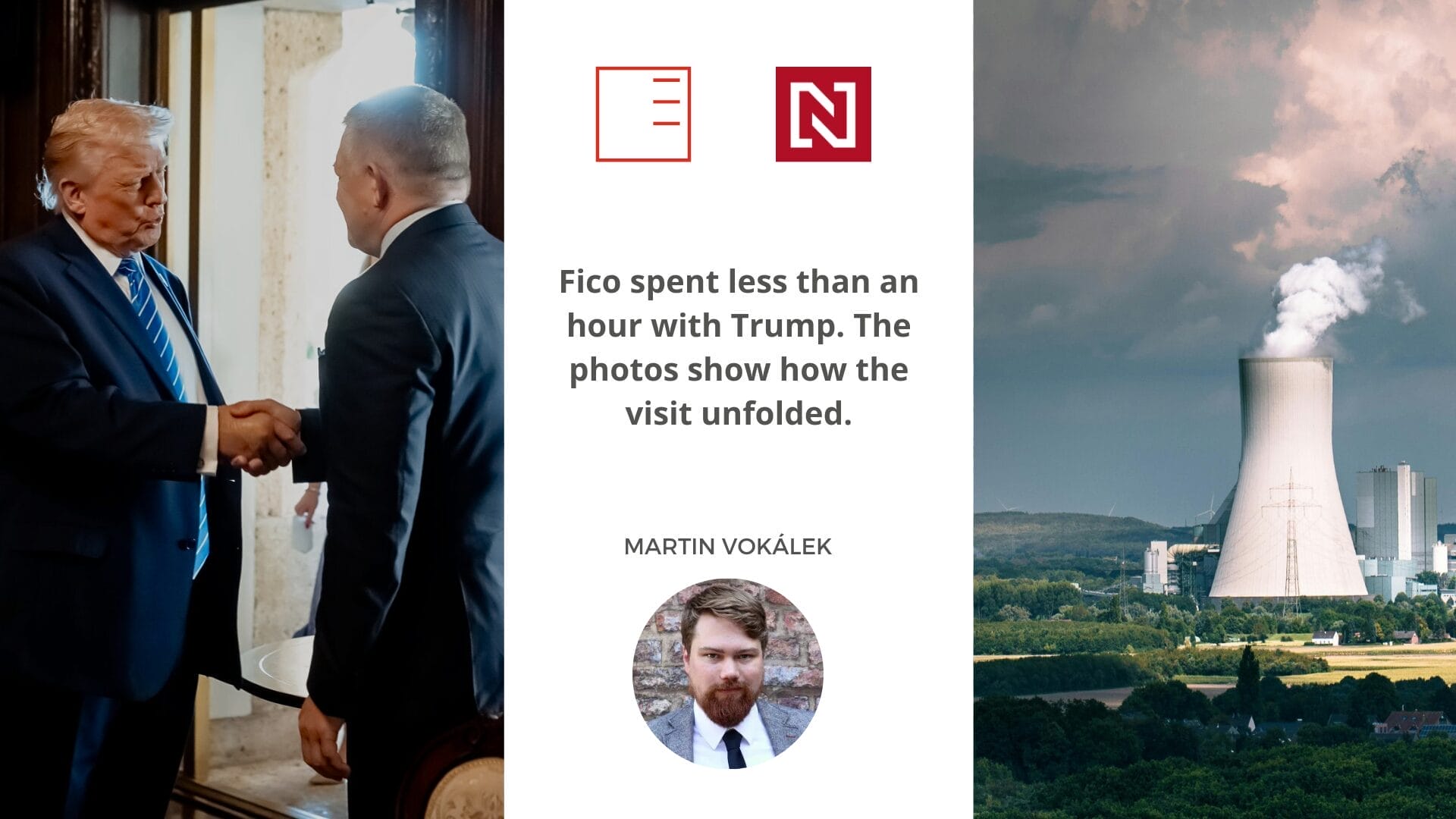Globsec Interviews | Jan Dusík: The Cost of Inaction Will Be Seven Times Higher than Reducing Emissions

European industry is facing rising costs associated with the energy transition. In your experience, how can we specifically reconcile climate ambition with maintaining competitiveness, while not neglecting the social impacts on coal-dependent regions and ensuring that the green path does not burden the most vulnerable groups in society?
In addition to the unanimous commitment of EU leaders in the European Climate Change Act to make the EU climate neutral by 2050, climate change regulation is a necessity given that the costs of inaction and damage caused by climate change will be about 6-7 times greater than the costs of reducing emissions. The competitiveness of European business and decarbonisation are interlinked - it is also the answer to our dependence on energy imports, which is the cause of high energy prices in Europe and poses a question of our energy security and resilience. The specific alignment of climate ambition with social impacts - both in terms of transition costs for households and for addressing the transition of coal regions - is reflected in various European funds - the Structural Funds, the Cohesion Fund, the Fair Transition Fund and, most recently, the Social Climate Fund that accompanies the introduction of the ETS for buildings and transport (ETS2). Transition concerns the whole of society, but it must be socially viable and must not forget vulnerable groups in particular.
As a UNEP representative, you have been involved in international climate agreements. In the Czech Republic, we often hear the concern that we are “pushing too hard” on decarbonisation. Where do you think the line lies between ambition and feasibility of climate goals? What pace should we choose now? And who should set the pace of the transition: the EU, national governments or the market?
At the heart of greenhouse gas regulation is carbon pricing through the ETS. Today, far from being unique to the EU, there are over 70 different carbon pricing schemes around the world, often inspired by the European ETS. Most countries in the world already have climate neutrality targets, whether as the EU in 2050 or even earlier or later - China 2060, India 2070. The Paris Agreement aims to keep global warming as close to 1.5 degrees Celsius as possible and well below 2 degrees in any case. Our EU commitment comes from the Paris Agreement and we are pressing other countries around the world to align their ambitions with the Paris Agreement targets. The market is helping us to make emissions reductions in the most cost-effective way, reducing EU emissions by 50% in the 20 years the EU ETS has been in operation, and earning €200 billion in further decarbonisation that would never have been possible from public budgets. The EU's targets are not only scientifically sound, but their achievability is documented by numerous impact studies.
Your work for WWF in the Arctic has put you in direct contact with the impacts of the climate crisis. What specific lessons should Europe take from developments in the Arctic - and does this translate at all into EU or national climate policy?
The Arctic is a complex region. It is experiencing very dramatic climate change, which will have a major impact on ecosystems, but also on the region's population, infrastructure and economy. At the same time, climate change is opening up new shipping routes in the Arctic (such as the Northern Sea Route), opportunities for resource extraction or fishing. It is important that the economic development of the Arctic takes into account the protection of the ecosystems there, but also the rights and livelihoods of the indigenous peoples living there. This is also the focus of the EU Arctic Strategy. And it is good that the International Maritime Organisation (IMO) has now also agreed to decarbonise maritime fuels, which should also result in a lower burden of shipping on the Arctic region. And for fishing in the Central Arctic Ocean, there is an international agreement that commercial fishing is not possible until 2036, until it is determined whether any level of fishing is sustainable.
The European Union profiles as a leader in climate diplomacy - but its influence often runs up against inconsistencies in foreign policy. Should the EU invest more in climate partnerships with the Global South (e.g. in Africa) as a tool for geopolitical influence? And can it realistically compete with the Chinese investment model?
The EU is very committed both to acting on the emissions reduction ambitions of its global partners and to partnering to reduce emissions through a range of its international programmes. We need to address not only just over 6 per cent of emissions in the EU, but also the remaining 94 per cent of emissions in the world. Our bilateral partnerships therefore always have a climate element to them, both in terms of reducing emissions and helping with adaptation. This is a joint effort between the European Commission and the Member States - we are Team Europe.
There are growing voices that the Green Deal needs to be adjusted in light of geopolitical changes - the war in Ukraine, energy security, US pressure for reindustrialisation. In your view, is there room to revise the European climate strategy, or would this weaken its credibility and leadership?
The direction of travel is set and our objectives to date are being met. A recent assessment of Member States' National Energy and Climate Plans shows that the European target of a 55% reduction by 2030 is achievable. At the same time, we see that China has clearly played the clean technology and energy card, which is a clear signal of where the world economy is going. The point is to find our opportunities and our place in global markets in this direction and to maintain our stable partnerships. And tackling climate change is in line with security strategies and part of the discussion of security experts - as was also demonstrated during the just concluded GLOBSEC conference in Prague.
Are you interested in the interview? We also spoke with other guests at GLOBSEC:
Rikard Jozwiak: EU policymaking drives me mad





